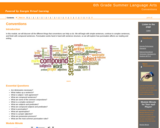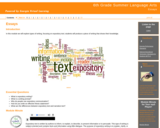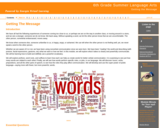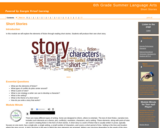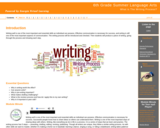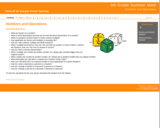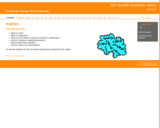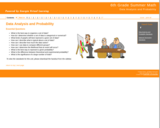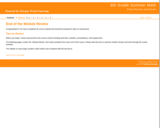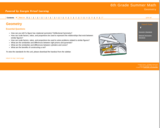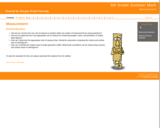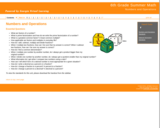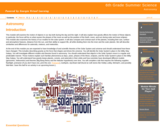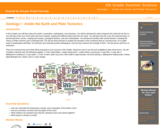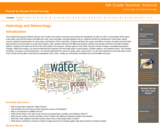
In Module 4, students learn about remarkable accomplishments in space science, paying special attention to accomplishments and people that may have been overlooked until recently. After reading supplemental texts to learn about key events and well-known figures of the Space Race, students begin their anchor text, Hidden Figures (Young Readers’ Edition) by Margot Lee Shetterly. This tells the story of the “West Computers,” the first black women hired by the National Advisory Committee for Aeronautics (NACA, later NASA), which had previously enforced discriminatory hiring policies. The work of these tremendously talented mathematicians, like Dorothy Vaughan, Mary Jackson, and Katherine Johnson, led to major advances in space science and helped land human beings on the moon. Major tasks in the module provide opportunities for students to uncover and uplift the stories of these and other hidden figures who have typically not been centered in popular accounts of space science.
Across the eight lessons of Unit 1, students read engaging informational texts about important events in the Space Race of the mid-twentieth century, leading up to the Apollo 11 moon landing. In the first half of Unit 1, much of the work around these texts is related to point of view (e.g., John F. Kennedy’s point of view toward space travel). In the mid-unit assessment, students apply this work to a new text, analyzing the author’s point of view toward the Apollo 11 astronauts and mission and toward the future of humans in space. The informational texts of the second half of Unit 2 add deeper complexity to students’ understanding of the Space Race. Students read arguments that challenge the United States’ decision to invest in space exploration, especially when civil rights abuses were taking place at home. In preparation for the end of unit assessment, which features similar tasks, students practice tracing the arguments posed in these texts, identifying the authors’ main claims and identifying the evidence and reasoning that the authors use to support their claims. This unit helps students build critical context needed to frame and understand the content and focus of Units 2 and 3.
In Unit 2, when students begin reading Hidden Figures, they quickly discover that popular accounts of the Space Race have generally overlooked the contributions of the West Computers. In the first half of Unit 2, students analyze the way that Shetterly introduces and illustrates Dorothy, Mary, and Katherine in the text. Students also practice identifying claims about the West Computers that can be supported using evidence from the text. Students apply this learning and complete similar tasks during the mid-unit assessment. In the second half of Unit 2, and on the end of unit assessment, students read supplemental texts about the West Computers and compare and contrast the authors’ presentations of events with Shetterly’s presentation of the same events in Hidden Figures.
In Unit 3, students revisit the Painted Essay® structure to analyze a model argument essay that addresses the prompt: What makes Dorothy Vaughan’s accomplishments remarkable? Using a similar prompt about Mary Jackson or Katherine Johnson, students write collaborative argument essays that prepare them to produce independent arguments later in the unit. Informed by research conducted across Units 2 and 3, students’ independent essays present arguments about the remarkable accomplishments of their focus figure: a major contributor to space science, outside of the anchor text, whose important work is also comparatively unknown. The performance task of Module 4 invites students to create illustrated pages for a narrative nonfiction picture book about the accomplishments of focus figures. These picture books provide engaging visual support to students’ presentations of their focus figure arguments during the end of unit assessment. During this assessment, students also delineate the arguments of their classmates and reflect on their learning across the module as a whole.
- Subject:
- English Language Arts
- Material Type:
- Module
- Unit of Study
- Provider:
- EL Education
- Date Added:
- 05/17/2024
